The Family Living on a Remote Farm: 'The State Cannot Uproot Us'
Hezekiah Amir Dromi traveled the world for seven years before he found his way to Judaism. Together with his wife, they established a farm in the mountains, not anticipating that one day the state might demand their departure. Amidst herding and olive harvesting, he shares their struggles, firmly believing that 'everything will turn out for the best.'
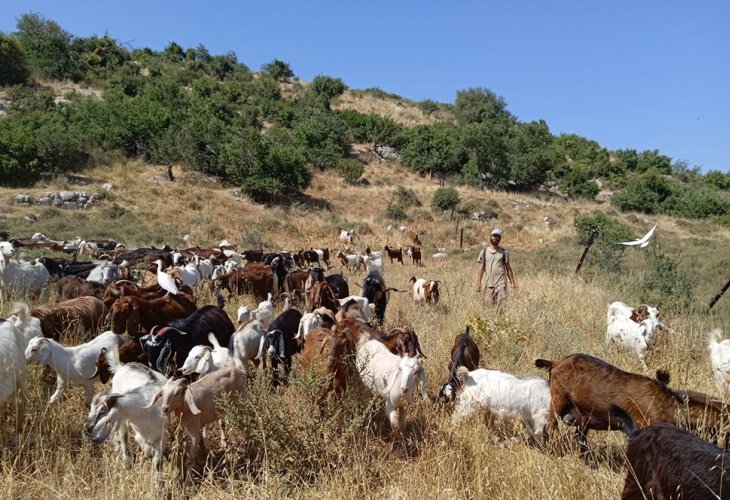
Somewhere in the hills near Beit Shemesh, on an organic farm, the Dromi family has lived for forty years. Their lifestyle is entirely different from the norm. In fact, almost nothing about them resembles other households. They aren't connected to the electric grid, relying instead on solar power; they don't have a municipal water supply, drawing water from a well, and they produce most of what they need. Fruits, vegetables, and even some spices used in their kitchen come from their fields around the house. Additionally, the Dromi family raises a herd of goats and engages in youth rehabilitation and various educational farming activities for income. They also have an olive press on millstones, which was operational for years, but has been inactive for the last 20 years due to an administrative order.
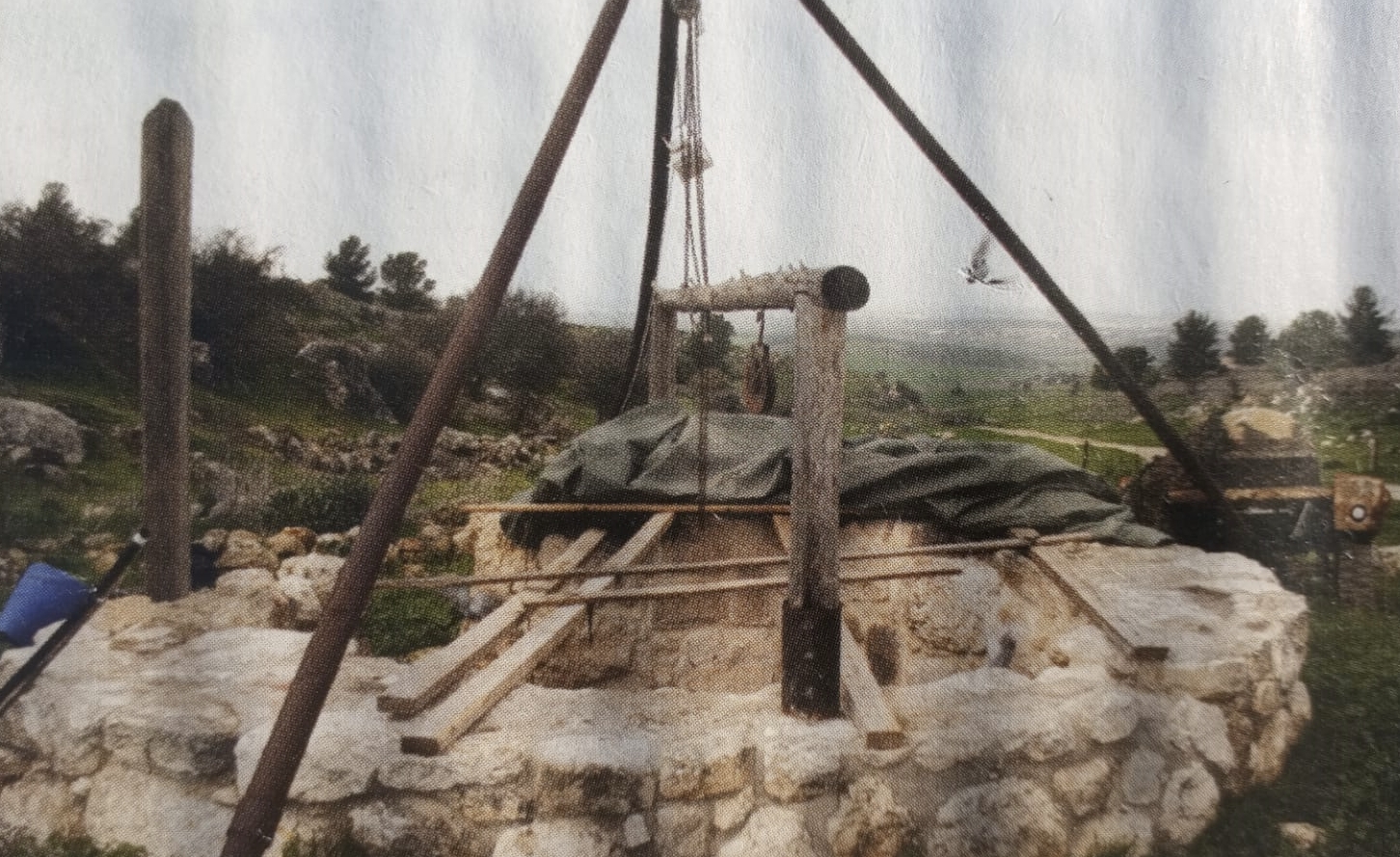 The Water Well
The Water WellHezekiah Amir Dromi, who established this extraordinary farm with his wife Yael, is not a young man. He is a father and a grandfather to many grandchildren. Yet, he and his wife continue to herd the flock and tend to the fields out of endless love for simplicity and primordial landscapes. They do this with their children, who have their own families but continue to visit the farm. "Not a day goes by that I don’t thank Hashem for bringing me here," Dromi mentions, "and generally for bringing me closer to Him, because my life started from a very different place."
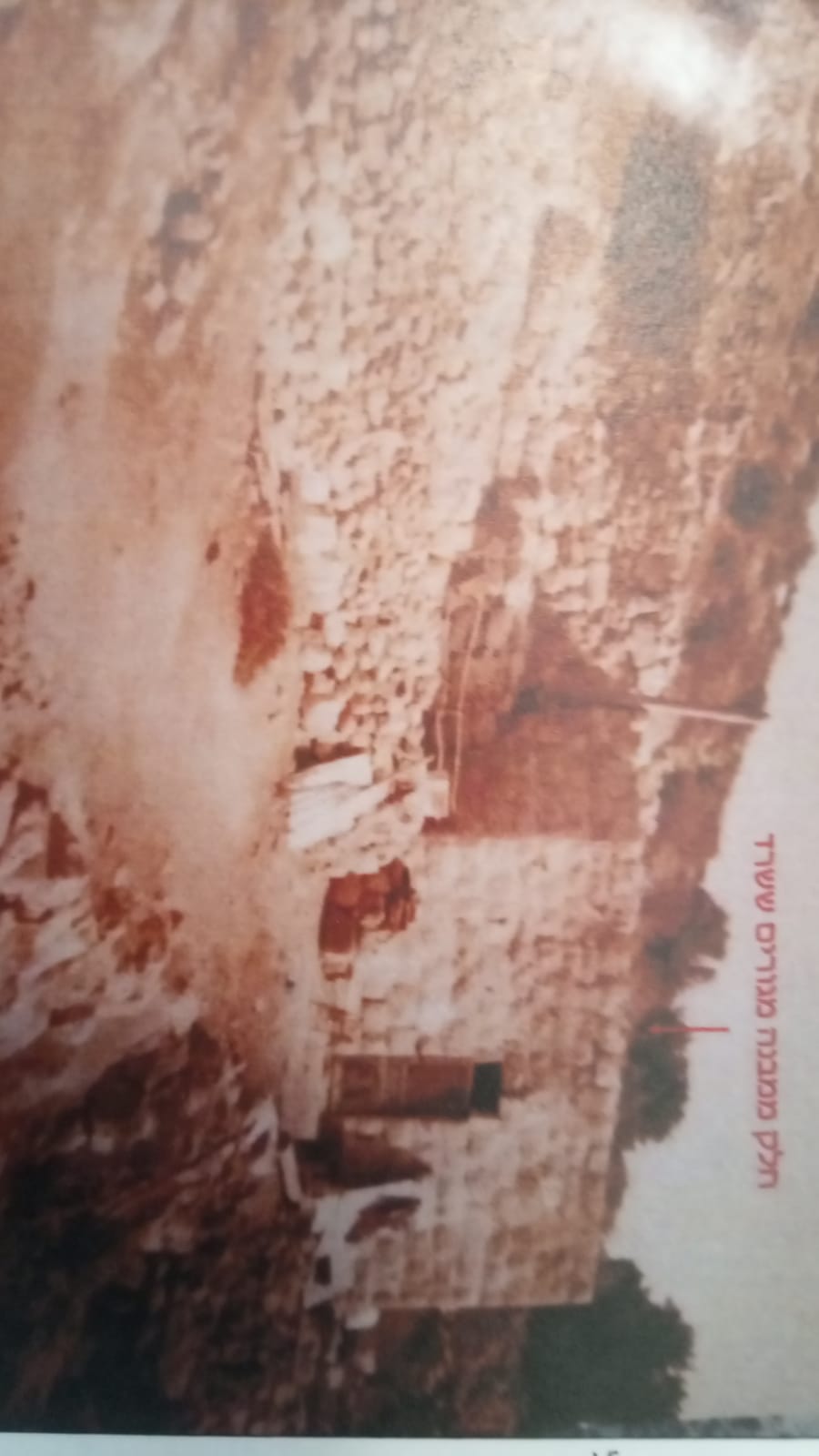 How the place looked when they arrived
How the place looked when they arrived
A Seven-Year Journey
Dromi was born in Kibbutz Urim in the Negev, to parents who were among the kibbutz's founders. His mother came from the USA and his father from Bulgaria. When he was five, his family moved to the USA for six years for his father's studies.
"From the USA, we returned to Be'er Sheva," he continues, "I grew up and was educated there, attending a local school, and later at an agricultural high school. I served in the army, and during the Yom Kippur War, I was nearing the end of my service. I was stationed at the Lebanon border and experienced both the harshness of war and the miraculous victory when we won even though it seemed hopeless."
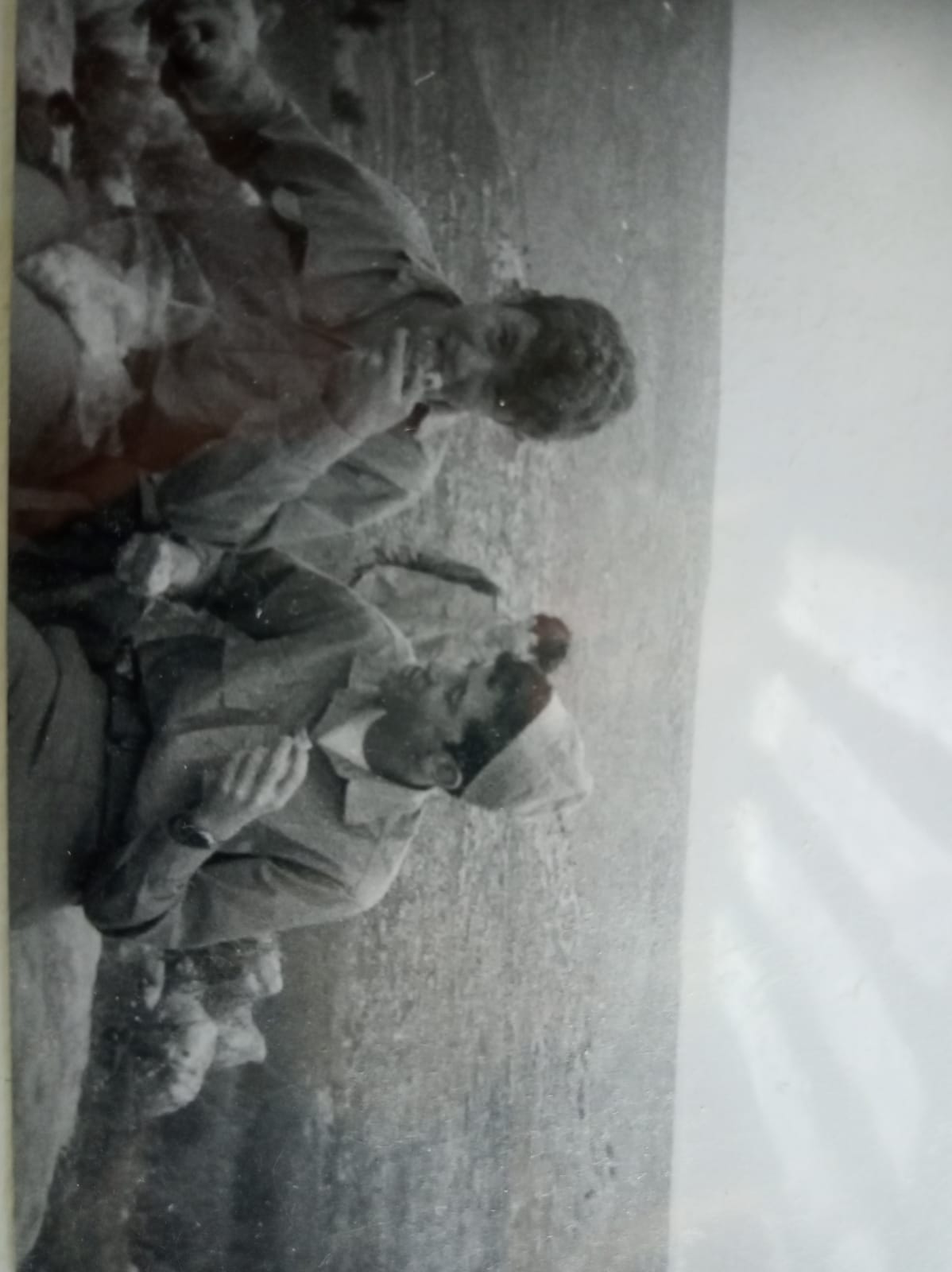 Childhood photo
Childhood photoAfter his discharge from the army, Dromi felt the difficult sights couldn't leave him, and he felt he had to leave the country to calm his soul. So he found himself in his early twenties embarking on the longest journey he ever undertook.
"A 'long journey' by the standards of today’s ex-soldiers might last a year or even two, but for Dromi, this was just the start. "I began the journey in Turkey, from where I walked almost entirely on foot to India via Iran, Afghanistan, and Pakistan. I continued to countries in Africa and the Pacific region. For seven years, I traveled leisurely, walking trails and marveling at the beauty of creation, taking care not to sleep more than two nights in one place to experience as much as possible. I witnessed a magnificent world with unknown tribes, diverse customs, wonderful lands; it was captivating and primarily sparked my quest for my own truth."
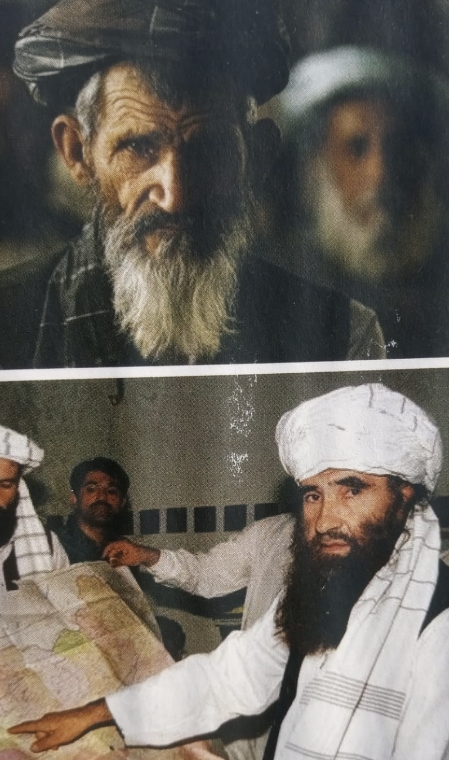 Traveling in Afghanistan
Traveling in AfghanistanWere you alone throughout the entire journey?
"Yes, most of the trip I was alone, but twice during the journey I met a good friend who traveled with me for a long time. I loved being alone, I wanted to be with my thoughts and personal experiences. The truth is, I barely took any belongings, I had only a small backpack sewn with my hands. I didn’t need money as I had almost no expenses. I avoided transportation, didn’t sleep in structured places, and was satisfied with the simplest food."
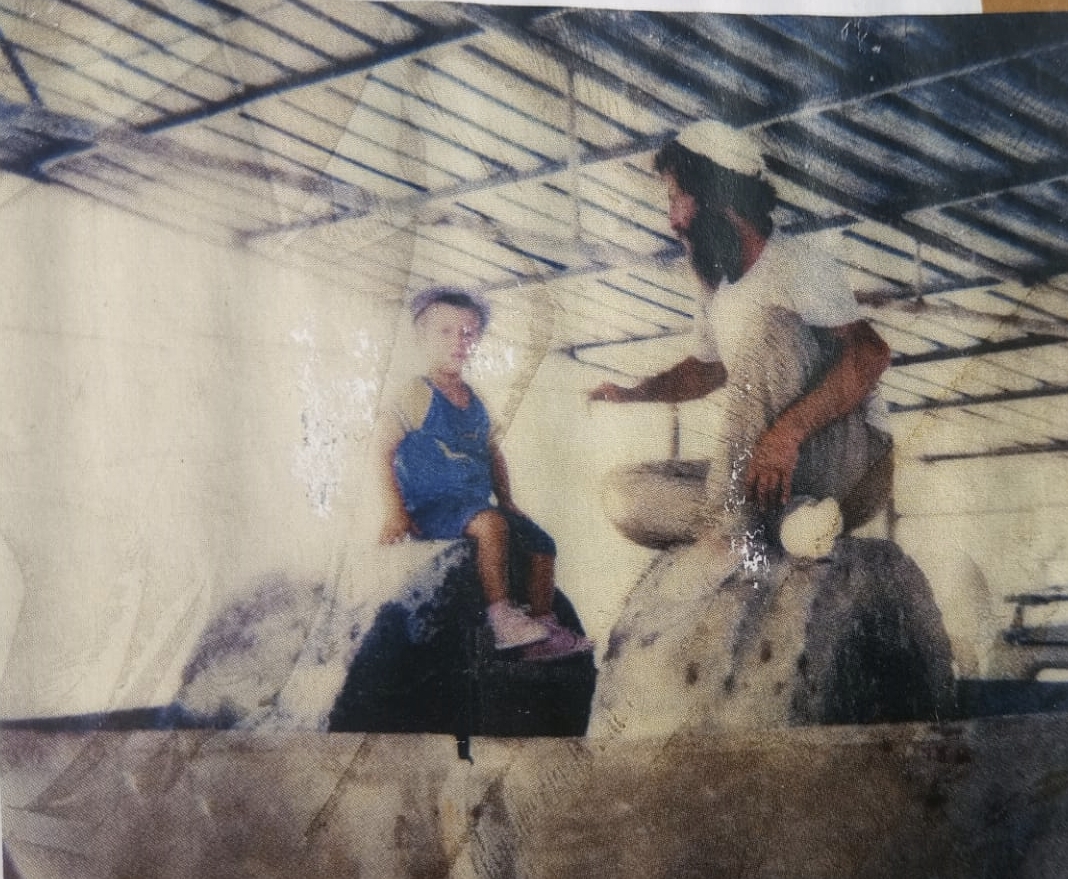 In the old olive press
In the old olive pressDromi notes that during the journey, he developed a habit of not going to famous places he heard about since such places are tourist spots, and therefore the locals do not behave in their natural manner. "I wanted to see the regular lives of these people," he clarifies, "and indeed I reached the most remote corners of the world. Naturally, when you act on self-learning, you also err, and indeed I made quite a few mistakes, some significant. But like a baby who falls repeatedly and eventually learns to walk, I too taught myself. I didn't give up; I was intensely searching, feeling a strong urge to understand how people live in the world, what causes various phenomena, and especially what influences war or peace. My feeling was that only after I truly understand would I know my path in life and what I am searching for."
Did this unconventional trip really help you understand yourself better?
"The trip helped me realize that I'm not as smart as I thought," he smiles, "As time passed, I began to understand there are things I didn’t know and if the decisions were truly mine, I wouldn’t have been here long ago because I made a few fatal mistakes during the trip that almost led to my death. Hashem always accompanied me, saved me, and protected me from all kinds of tough situations. Eventually, I had to admit I was wrong and the only one saving me is the One Above. He never leaves me, even in extreme situations. He simply exists and is present."
As mentioned, throughout the journey, Dromi was engaged in a search. "I read a great many books and writings until I happened to read words from our Torah, and suddenly discovered they spoke exactly about what I was searching for."
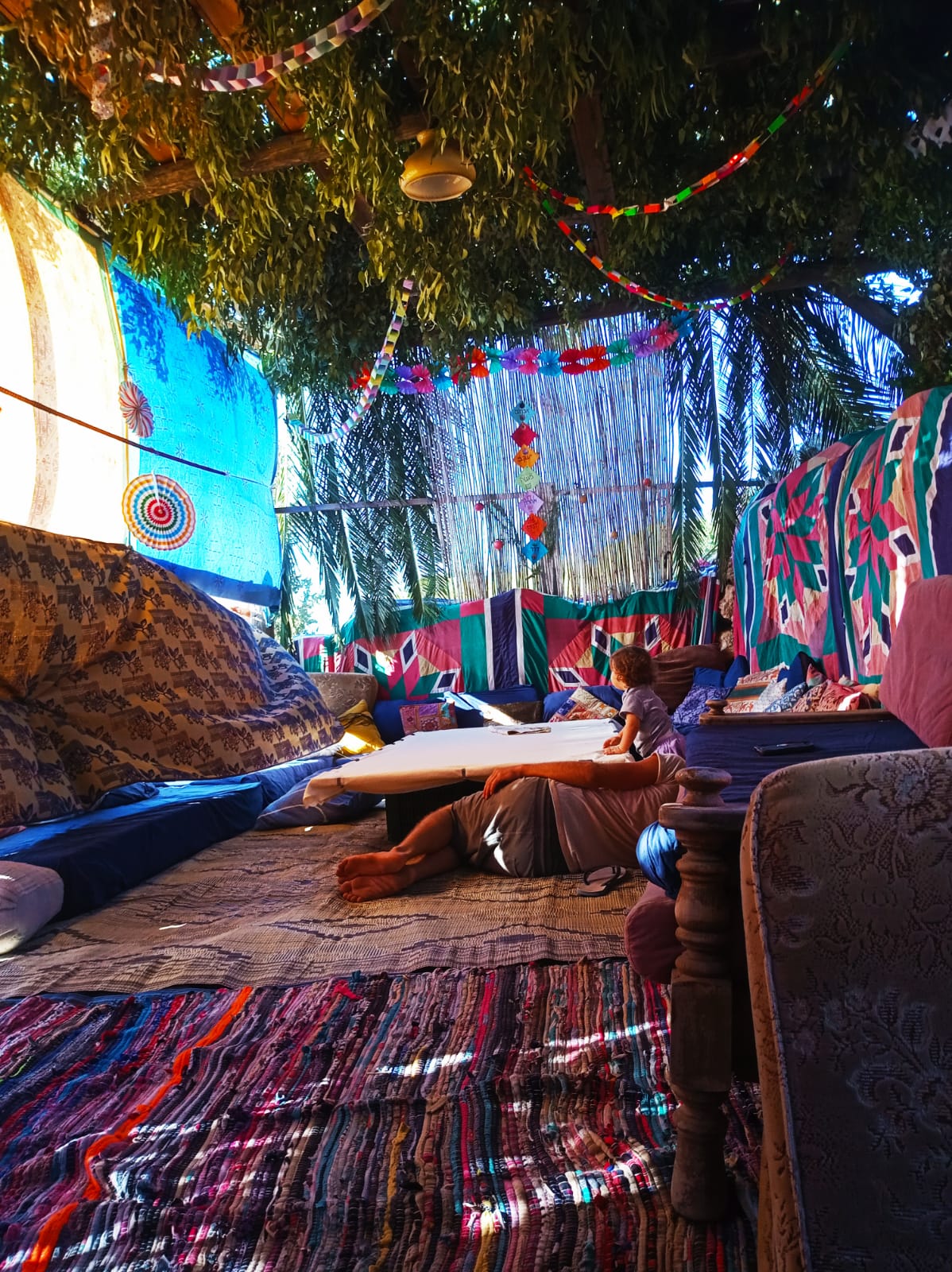 The Dromi Family Sukkah
The Dromi Family SukkahHe emphasizes that it wasn't a revelation that occurred in one day but a very long process during which he felt the inner connection and developed an understanding that nothing in the world happens by chance but there is a higher entity and even more so, he wants to do the will of Hashem and fulfill his purpose in the world. "They ask me when I returned to religion and I always reply that to this day I am in the process," he notes, "because there is always more to add and learn."
On one of his short visits back to Israel, he met Yael, his future wife, born in Haifa, who served in the army at a kibbutz on the Lebanon border. "She joined me on my journey around the world and after we returned, it was clear that we would continue on our shared journey which continues to this day – the journey of life."
Living the Nature, Connecting to Creation
Nothing in Dromi's life was the same as others. "After years of secluding myself with my thoughts, I felt I wanted to live a simple life, be part of the nature that Hashem created, and fulfill my purpose," he explains. "I wanted to grow my own fruits and vegetables, enjoy the vastness, and distance myself from the hustle and bustle of the city."
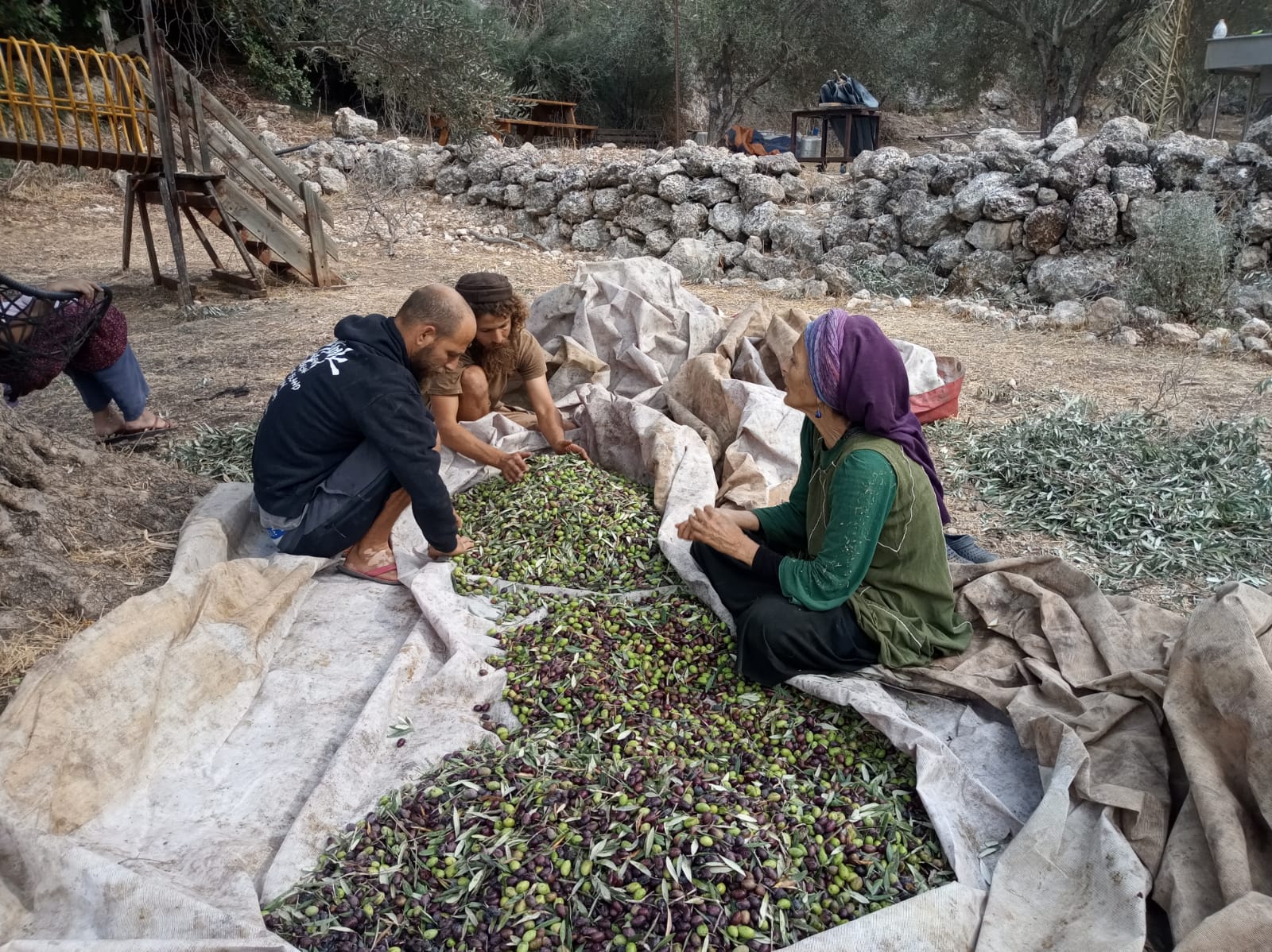 Family Harvest
Family HarvestHow does one live like this in Israel?
"Well, we truly had no place to do it. After the wedding, we approached the Israel Land Authority and obtained their consent to establish a farm in the southern Carmel. However, when we arrived, it turned out to be near an IDF firing zone, and there were stray shots landing there. I remember complaining to my wife: ‘You see? Even the army is shooting at us'. At some point, we boarded a plane to New Zealand, and for a year, lived on the islands while I dreamed of the possibility of sitting my whole life on the banks of a stream, being with myself and my Creator. But apparently, I was already in another place, my heart was in Israel, and strong yearning developed. With all the beauty and paradise of the wonderful islands, it was clear I couldn’t stay there, so after a year we returned to Israel, continued to strive to obtain land for a farm, and eventually got permission to establish an organic agricultural farm in the mountains near Beit Shemesh."
How do you explain the strong desire to live alone?
"First of all, it is said that ‘wherever a person desires to go, there they lead him.’ There are people who love working in hi-tech, sitting in front of a computer; they choose that, and Hashem gave them the permission. I decided I wanted a simple life. That’s what I connect to. To this day, I sometimes look with apprehension at the rapid progress and often ask myself where we will end up eventually. I don’t connect to it and enjoy living in modesty – with simple water and the fruits and vegetables we grow ourselves. We have a herd of sheep that we graze every day, and that’s our way. I didn’t invent it; our ancestors did the same."
And don’t you miss social company?
"We aren't lacking friends at all, because we’re not extreme and don’t abstain from the world. Although in the early years we were very isolated and even homeschooled our children, at some point we realized we had gone too far because children need to develop their social skills, so we sent them to school. Due to their contacts with classmates, kids started visiting us in the afternoons. Their parents would call later and ask, ‘Our child came back so happy and calm, how did you do it?’ That’s how our connection with many families and people developed, and we also began to understand that we have a real tool that can help not only us but also the community. Childhood friends visit us too. People from all sectors of the public come here; they enjoy the atmosphere and leave with new insights. Quite a few young men who lost their way have visited, not knowing how to return. We went herding together, they experienced some peaceful moments, and eventually, their minds were settled. I feel this is truly a great mission."
And how does your wife fit into this lifestyle?
"This connection also comes from her; she completely complements me – I balance her, and she balances me. We are so happy with our lot, and now that we have children, grandchildren, and a lot of interaction with people looking for ways to strengthen and get closer to the Creator and our beloved land, I feel we did what’s good for us."
Risk of Collapse
But just these days, what Dromi calls "the irony of fate" occurred, although in his view, it’s far from funny. "I remember 40 years ago, when we first arrived at the farm, we sat under an ancient carob tree and thought about the difficulties that lay ahead," he recalls. "We talked about not having water or electricity, and on the other side, there could be thefts and fires. We looked into each other's eyes and accepted the mission. Since then until today, indeed there have been a lot of challenges, exactly as we anticipated. But one thing we could never imagine or consider." Dromi pauses for a moment, his voice choking: "We never dreamed that eventually, the Israel Land Authority would be the one to demand we dismantle the farm, which indeed has been happening in recent years."
But why dismantle? What is their claim?
"They have various claims, but it's clear to me they're just looking for reasons to prevent us from living here, and the proof is that we are not alone. There were six other farms in the central region, and the authority dismantled them all. We are the only ones that survived, and even that not entirely. Recently, we received a demolition order requiring us to destroy almost the entire farm, including the synagogue housed in an ancient preserved building and the cave where yeshiva boys who had no home stayed. It's something I never believed could happen. For years, we experienced so much satisfaction, and suddenly everything is turned upside down and we supposedly become enemies of the state."
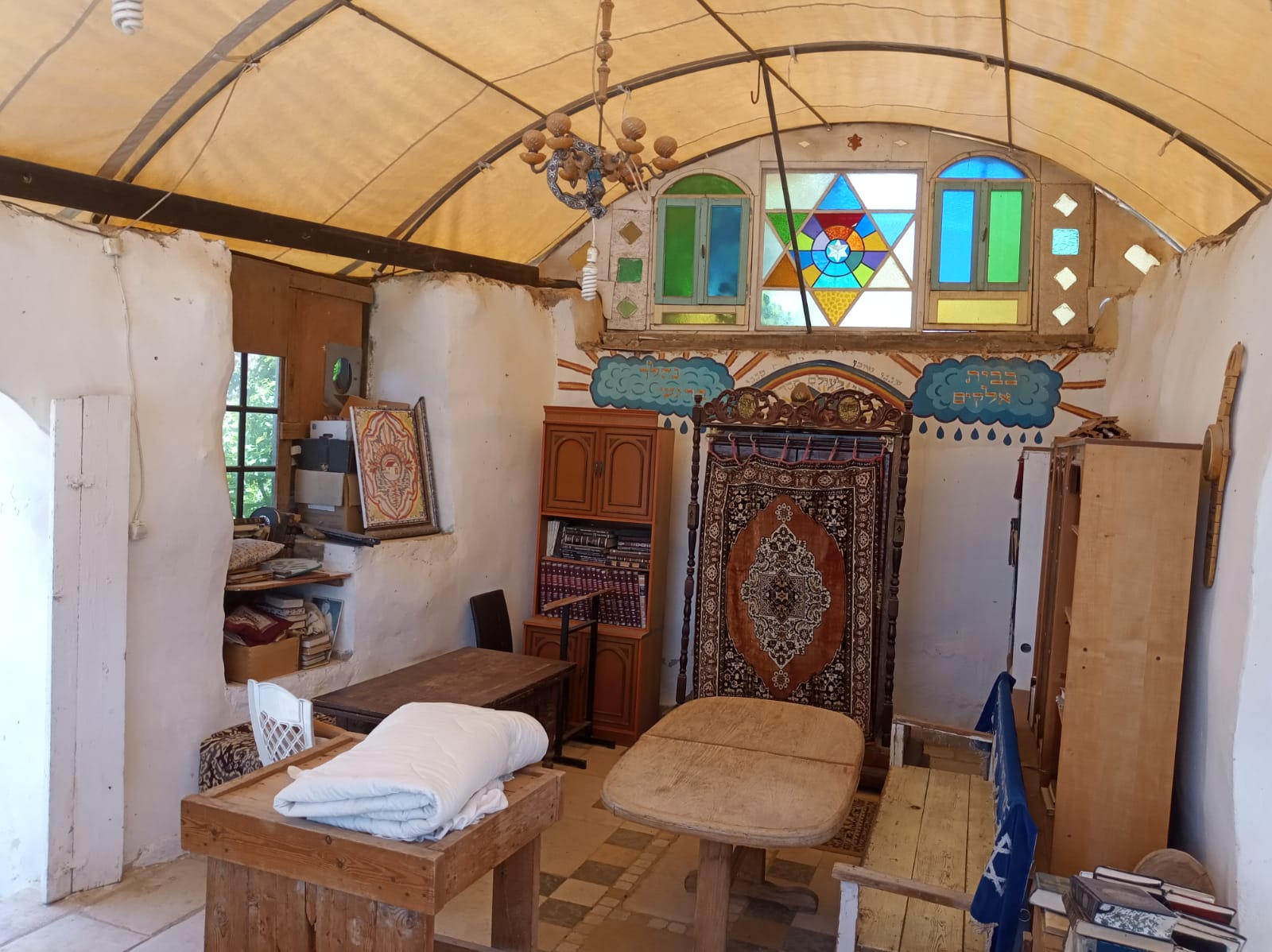 Synagogue before dismantling
Synagogue before dismantling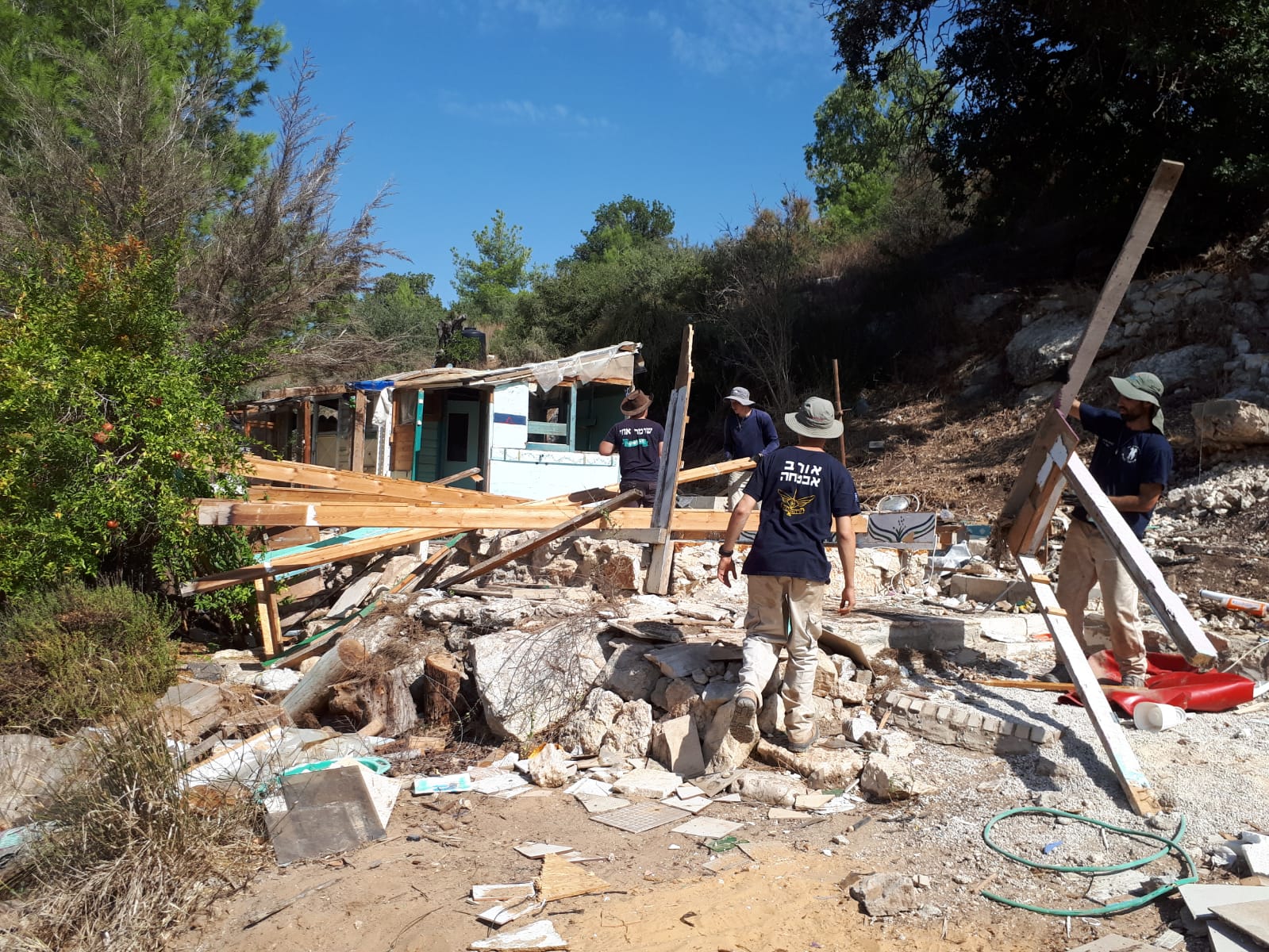 Demolition process
Demolition processAnd what gives you strength?
"I know that our living here is not only for ourselves but for the entire nation of Israel. Beyond the mountain where we live, there are Bedouins, and it's clear that the moment we leave, they will take over our farm too. Additionally, we protect against fires and guard the place. Not to mention the many people who come here and feel a direct connection to nature."
And if, God forbid, you are forced to evacuate the farm, where will you go?
"I can’t bear to think about it because it's obvious my heart would break at that moment. But I don't believe Hashem will allow it to happen. Rabbi Chaim the Milkman, may his memory be blessed, my rabbi and teacher, guided me precisely how to act, instructing me that despite the difficulty, I must demolish the synagogue and the children’s homes we built. It wasn't easy, but he explained that I must compromise, endure the hardship, and thereafter I would see that, with Hashem’s help, everything will turn out for the best. That’s what I did, and all that’s left is to believe that everything will yet turn around, and with Hashem’s help, we will continue to live here and do our utmost to preserve and develop the place for us and all of Israel."

